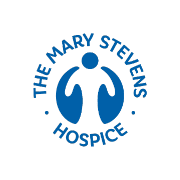About Us
No Barriers Here was developed in 2019 by The Mary Stevens Hospice, Dudley Voices for Choice and an Arts Psychotherapist as a co-produced project to improve advance care planning and access to palliative and end of life care for people with learning disabilities. The team adopted a public health approach to palliative care aiming to explore a more equitable method for people with learning disabilities to participate in advance care planning. A series of workshops were co-designed and co-delivered outside of the clinical environment using arts-based methods. The workshops guided people through the core principles and topics of advance care planning with participants invited to collaborate towards a large community advance care plan and a film. The programme, funded by the Masonic Charitable Foundation and managed by Hospice UK, was awarded Hospice UK ‘Innovation in Tackling Inequalities Award’ 2021 and finalists for The National Learning Disabilities and Autism Awards 2021 and NHS Improvement Awards in the ‘Improving in Co-production’ category.
In April 2021, The Mary Stevens Hospice was awarded funding by NHS Charities Together for a research study and education programme to improve care at the end of life for Black, Asian and ethnic populations within the Black Country using No Barriers Here. In Partnership with The Dudley Group NHS Foundation Trust and in co-production with people from Black, Asian and ethnic communities the study includes No Barriers Here advance care planning workshops to address inequity for people who may be excluded due to identity, culture, ethnicity or race.
Further research using No Barriers Here as a methodology has since been funded, in addition to workshops being delivered across a variety of settings and services including hostels and homeless housing support services, community healthcare centres, paediatric palliative care settings, hospice, care homes, acute settings, hospices and even a festival.
A facilitator training programme is available for healthcare professionals.
Why do we use arts-based methods?




Arts-based methods have been used to amplify the voices of marginalised groups, people and communities throughout history. Art-making and creativity are both innately human instincts and can act as great levellers. In recent years, developments in neuroscience and understandings of the impact of trauma have highlighted the need for less verbal approaches for some groups and communities. When used with people and groups who experience similar exclusion, these methods have found to be an excellent way to have deeper, safer, broader, more meaningful conversations about care at the end of life.
“No Barriers Here unapologetically shines the light on the issue for those of us from minoritized groups. It is not us that are hard to reach, it is the barriers that need dismantling.”
Dr Jamilla Hussain, Palliative Medicine Doctor and Research Fellow
“This is absolutely brilliant. Thank you for inspiring all of us to talk about our end of life wishes.”
Dr Kathryn Mannix, Retired Palliative Medicine Physician and author of ‘With the End in Mind’

